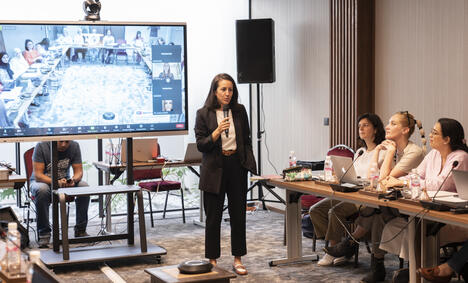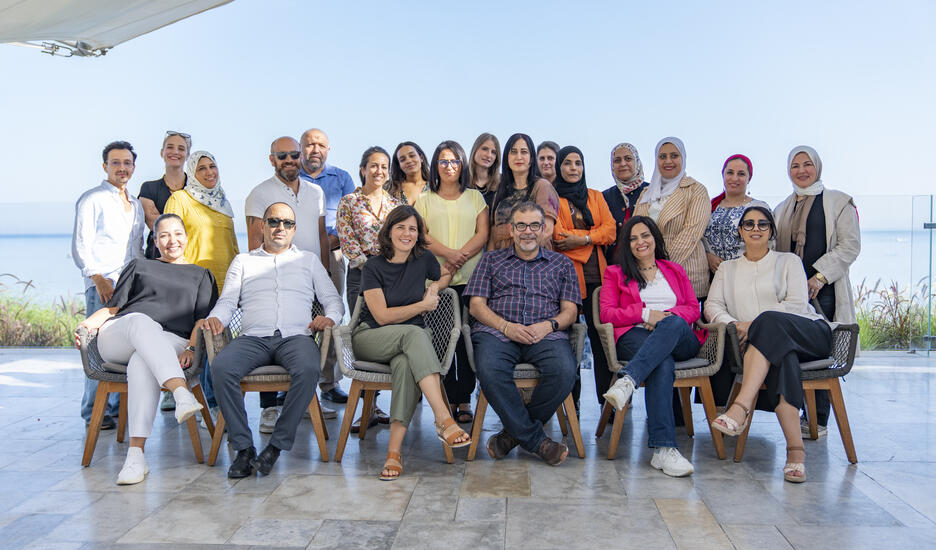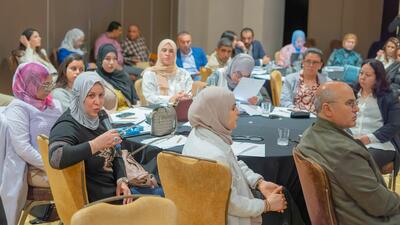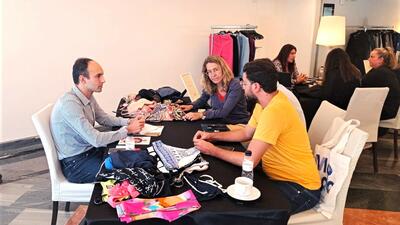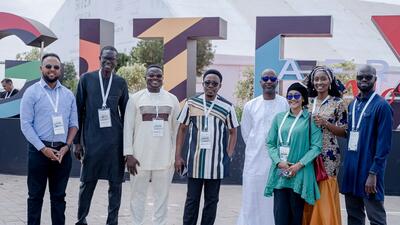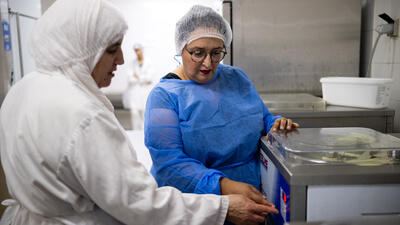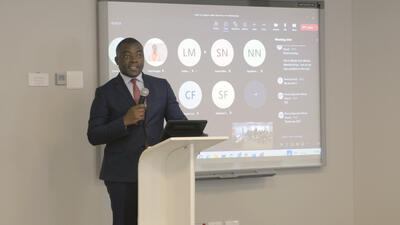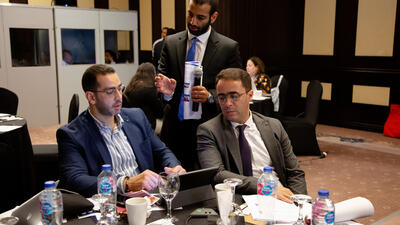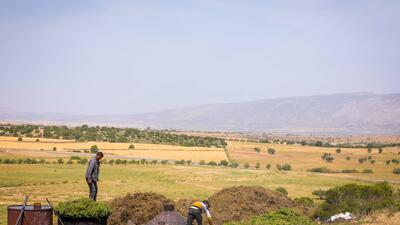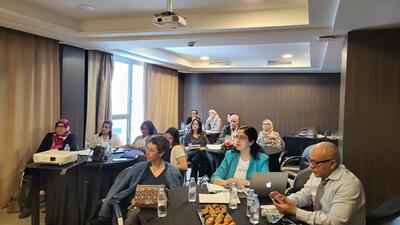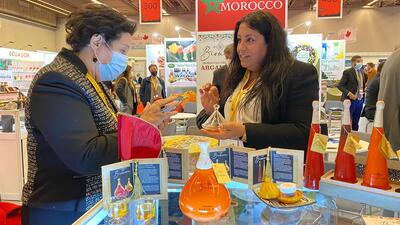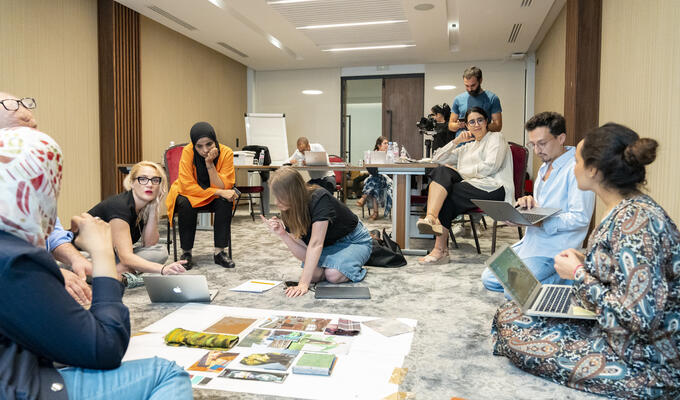
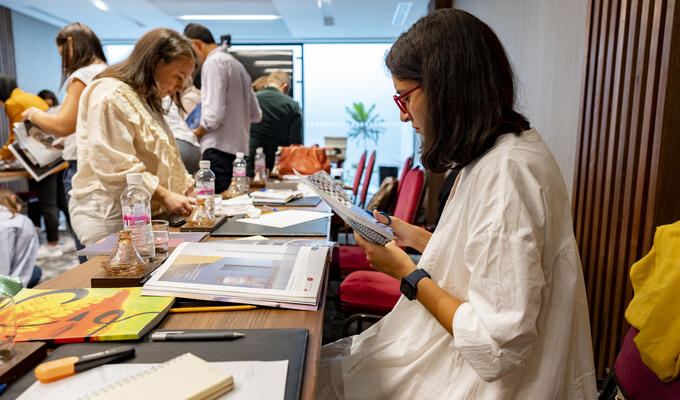
Building fashion connections in the Middle East and North Africa
Fashion professionals built new connections and learned new skills at a series of workshops
Fashion professionals in the Middle East and North Africa (MENA) might share the same region but weren’t finding enough collaboration and exchange with academic institutions in the neighbouring countries.
The MENA Fashion Hub provided an opportunity to join a larger network. The International Trade Centre (ITC) organized a series of workshops for fashion professionals, instructors and professors. The trainings covered the fashion design process from concept to finished product, as well as how to understand and forecast trends.
Jehad Haddad, creative director and fashion instructor at the Garment Fashion and Design Centre in Jordan, said that it was "an eye-opening experience” to exchange knowledge with fashion institutions in Morocco, Tunisia and Egypt.
“My colleagues who specializes in pattern-making found it very useful to learn more about how this part of the industry works in different countries. We found that many of the methods used in Tunisia could be applied back in Jordan,” said Haddad.
Abdelhanine Raouh, director of studies at the Casablanca Fashion Academy in Morocco, said that the exchanges kicked off important collaborations. He said he is optimistic on future partnerships in the future.
“Thanks to the field visits and the workshops, I formed a collaboration with the fashion cluster of Tunis. We look forward to welcoming some Tunisian designers in Morocco so that they can share their experiences with my students.”
Jihen Trabelsi Kraiem heads the Design & Textile Department at the Higher Institute of Fashion in Monastir, Tunisia. He said that design and innovation are the heart of his country’s textile and clothing industry. In a rapidly changing market, these are key concerns.
"These joint training and networking events were an important opportunity for exchange. We shared ideas and found ways to build connections between student designers and textile engineers in Tunisia,” said Kraiem.
Facilitating regional connections
This ITC event was centred on creating a network of fashion professionals in the Middle East and North Africa. It took place in Tunis from 31 October 31 to 3 November 2022. The Global Textiles and Clothing Programme (GTEX) and the Middle East and North Africa Textiles Programme (MENATEX) organized the event, co-financed by the Swiss and Swedish governments.
The collaborative workshops catered to professionals from training and educational institutions in the field of fashion design from Egypt, Jordan, Morocco, and Tunisia.
The GTEX/MENATEX Programme supports universities and fashion schools to foster collaboration by connecting professionals with local and international industry peers.
The workshops benefitted from technical inputs of experts from Mod'Art International, a fashion school in Paris, on trend forecasting and the creative processes of fashion design.
Participants also visited the Sectoral Training Centre for Clothing in La Goulette, a fashion school, as well as Tunisia’s fashion cluster in Den Den. This component was led by the United Nations Industrial Development Organization (UNIDO) as part of the Creative Tunisia project.
About the GTEX/MENATEX Programme
The Global Textiles and Clothing Programme (GTEX) and its related work in the Middle East and North Africa (MENATEX) supports small and medium-sized enterprises and business support organizations working in the textile and clothing industry in developing countries to increase their export competitiveness.
The GTEX/MENATEX programme is funded by the State Secretariat for Economic Affairs (SECO) of the Swiss Confederation and the Swedish International Development Cooperation Agency (Sida), focusing on six priority countries (Egypt, Morocco, Jordan, Kyrgyzstan, Tajikistan and Tunisia).




